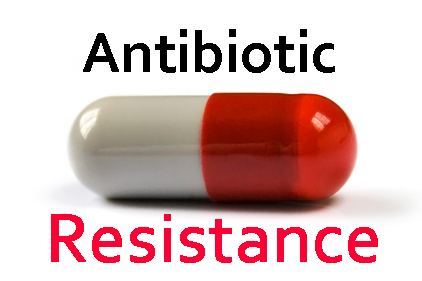- Home
- Medical news & Guidelines
- Anesthesiology
- Cardiology and CTVS
- Critical Care
- Dentistry
- Dermatology
- Diabetes and Endocrinology
- ENT
- Gastroenterology
- Medicine
- Nephrology
- Neurology
- Obstretics-Gynaecology
- Oncology
- Ophthalmology
- Orthopaedics
- Pediatrics-Neonatology
- Psychiatry
- Pulmonology
- Radiology
- Surgery
- Urology
- Laboratory Medicine
- Diet
- Nursing
- Paramedical
- Physiotherapy
- Health news
- Fact Check
- Bone Health Fact Check
- Brain Health Fact Check
- Cancer Related Fact Check
- Child Care Fact Check
- Dental and oral health fact check
- Diabetes and metabolic health fact check
- Diet and Nutrition Fact Check
- Eye and ENT Care Fact Check
- Fitness fact check
- Gut health fact check
- Heart health fact check
- Kidney health fact check
- Medical education fact check
- Men's health fact check
- Respiratory fact check
- Skin and hair care fact check
- Vaccine and Immunization fact check
- Women's health fact check
- AYUSH
- State News
- Andaman and Nicobar Islands
- Andhra Pradesh
- Arunachal Pradesh
- Assam
- Bihar
- Chandigarh
- Chattisgarh
- Dadra and Nagar Haveli
- Daman and Diu
- Delhi
- Goa
- Gujarat
- Haryana
- Himachal Pradesh
- Jammu & Kashmir
- Jharkhand
- Karnataka
- Kerala
- Ladakh
- Lakshadweep
- Madhya Pradesh
- Maharashtra
- Manipur
- Meghalaya
- Mizoram
- Nagaland
- Odisha
- Puducherry
- Punjab
- Rajasthan
- Sikkim
- Tamil Nadu
- Telangana
- Tripura
- Uttar Pradesh
- Uttrakhand
- West Bengal
- Medical Education
- Industry
India develops National Action Plan to combat Antimicrobial Resistance: Nadda

“Antimicrobial resistance is a serious threat to global public health that requires action across all government sectors and society and is driven by many interconnected factors. Single, isolated interventions have limited impact and coordinated action is required to minimize the emergence and spread of antimicrobial resistance.”
This was stated by Shri J P Nadda, Union Minister of Health and Family Welfare at at the ‘Inter-Ministerial Consultation on AMR containment’, here today. Shri J P Nadda also announced the finalization of India’s comprehensive and multi-sectoral National Action Plan at the function. Shri Ram Vila Paswan, Minister of Consumer Affairs, Food & Public Distribution, Shri Anil Madhav Dave, Minister of Environment, Forest & Climate Change, Smt. Anupriya Patel, MoS (Health & Family Welfare) were also present.
The Ministers later signed a ‘Delhi Declaration’ for collectively strategizing to contain AMR. It pledges to adopt a holistic and collaborative approach towards prevention and containment of antimicrobial resistance (AMR) in India. It calls on all stakeholders including UN, WHO, FAO and other UN agencies, civil society organizations etc., to support the development and implementation of the national and state action plans on AMR.
Shri J P Nadda said that under the guidance of the Hon. Prime Minister who has stressed on the need to converge actions across ministries and departments and not work in silos, so as to not have segmented outcome: “We are working in the direction of pulling out malaise of AMR from the root. Health Ministry is at the receiving end as there are various layers and every layer needs to be addressed”. He further added that the action plan has been prepared through extensive national consultations with various stakeholders. “In alignment with global action plan, India’s action plan has objectives of enhancing awareness, strengthening surveillance, improving rational use of antibiotics, reducing infections and promoting research. In addition, India aims to support neighbouring countries in collective fight against infectious diseases,” Shri Nadda elaborated.
Acknowledging the progress made by the Government in combating AMR, Shri Nadda said that Health Ministry has taken a lead in this effort at international fora and has initiated series of actions including setting up a National Surveillance System for AMR, enacted regulations (Schedule-H-1) to regulate sale of antibiotics, brought out National Guidelines for use of antibiotics etc. He further said that more efforts are required considering the large size of our country, magnitude of the problem and the fact that AMR needs to be addressed comprehensively under “One Health Approach”.
“This is a landmark occasion”, said the Union Minister for Health. “We are ready with a blueprint that meets global expectations. The challenge now is in its efficient implementation through a coordinated approach at all levels of use of antibiotics,” he added. Shri Nadda urged all State Governments to develop state-specific action plans and assured them of all possible assistance.
Speaking on the occasion, Shri Anil Madhav Dave, Minister of Environment, Forest & Climate Change, stated that the Environment Ministry is conscious of the AMR threat and shall contribute in every possible way. Shri Ram Vila Paswan, Minister of Consumer Affairs, highlighted the ill effects of irresponsible use of antibiotics, food adulteration, excessive insecticides, and pesticides, fungicides on human and animal health. Shri Paswan stressed on the need for creating more awareness among masses and strict laws against adulteration. Smt. Anupriya Patel, MoS (Health & Family Welfare) stated that collective strike and collaborative effort is needed as singular effort shall have limited impact. Smt Anupriya Patel advised for responsible use of antibiotics.
Shri C K Mishra, Secretary (H&FW), Dr Soumya Swaminathan, Secretary (DHR) and DG (ICMR), Dr. (Prof) Jagdish Prasad, DGHS, Prof. K. Vijay Raghavan, Secretary (DBT) and Dr. Henk Bekedam, WHO Representative to India and other senior officers of the Health Ministry were present along with representatives from Ministries of Agriculture, Pharmaceuticals, Information and Broadcasting, Chemicals and Fertilizers, Water and Sanitation, AYUSH, Food Processing Industries, ICMR, NCDC.


